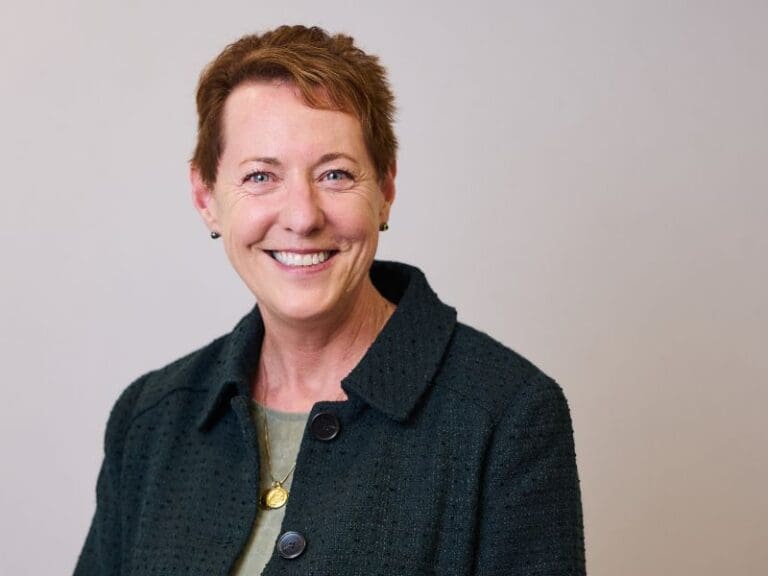For Brits, the UK cybersecurity industry is going from strength to strength.
With more than 58,000 individuals employed, the sector is one of the fastest-growing professions in the tech industry and saw a generated revenue of £10.5 billion in 2023.
However, despite the positive statistics, one factor remains the same – the need for a diverse workforce. Despite an 82% rise of women applying for tech degrees over the last decade, there just simply isn’t enough female representation across the industry, with women making up less than a quarter of the overall workforce.

So what is being done to change this?
In the UK, a positive shift towards diversifying the cybersecurity industry has begun, highlighted by the UK Cyber Security Council’s efforts to attract a wider talent pool, giving access opportunities in cybersecurity based on merit, not gender. The importance of female mentorship in tech is crucial in this evolving landscape, as it helps to further support and encourage underrepresented groups within the industry.
Initiatives such as the CyberFirst Girls Competition, the government-run Cyber Skills Immediate Impact Fund (CSIIF), and campaigns led by SheCanCode are specifically designed to inspire young women and enhance the diversity of professionals entering the field. These efforts ensure a bias-free selection process across all demographics.
Despite these positive steps, with an astonishing 76% of women in the tech sector having experienced gender discrimination or bias, the question remains: how are individual organisations making concentrated efforts to create a more welcoming and inclusive environment for women?
Two women’s commitment to diversity in cybersecurity
Enter SureCloud employees Janhavi Deshpande and Melody Shand who are making strides in highlighting the importance of inspiring and educating the next generation of women in tech.

“It is no secret that women are underrepresented in cybersecurity or wider STEM (science, technology, engineering and maths) industries when you look at the disparity in the education of girls in these subjects,” said Senior Product Manager, Janhavi. “That’s why we believe that it’s important to start early in the campaign for encouraging more women into the sector, beginning with education.”
For Janhavi, her foray into the tech world began with a degree in IT engineering. This foundational education was crucial, but it was her decision to pursue a Master’s in Managing IT at Salford University that truly catalysed her interest in cybersecurity.
Janhavi said: “A diverse educational pathway allows for the exploration of niche interests and the development of specialised skills. In my case, it was during my Master’s coursework that my fascination with cybersecurity was sparked. This focus might not have emerged had I stopped my education at the undergraduate level.”
She continued: “Education is the cornerstone for advancing in tech, but it’s not just about pursuing master’s degrees. That’s why it’s essential for employers to provide easy access to learning opportunities from workshops to online courses, which plays a pivotal role in shaping how women can initially access the tech sector. It’s these varied experiences that equip us with the diverse skills needed to thrive and innovate in such a fast-paced industry. You just need to find the correct pathway for you.”

Such as the pathway taken by Product Manager, Melody Shand. Starting out in chemistry, Melody originally worked at a large chemical and petrochemical company specializing in lubricants for vehicles, demonstrating best practices for women in hardware.
“It’s all about having the opportunity for a company to think outside the box and allow somebody to transfer the skills they have already learnt and apply it to a new role,” said Melody. “There are a lot of similarities between cybersecurity and the chemical industry. For example, my previous role was very safety and security orientated and I had to be very mindful and alert to potential dangers and take responsibility for strict processes.”
The opportunity given to Melody by SureCloud, was all she needed to make the jump to cybersecurity. She continued: “I was lucky enough to be accepted as an Applications Analyst, and focused on developing our applications for managing GRC solutions as well as cybersecurity. Since then I have progressed to working as part of the Product Team.
Rapidly acclimatising to the tech landscape, mastering new terminologies and technologies, Melody’s commitment to continuous learning and adaptability was key. “”The analytical thinking and problem-solving approach I developed in chemistry are directly applicable to cybersecurity, where one must often think several steps ahead of potential threats.”
Additionally, Melody immersed herself in cybersecurity literature and sought mentorship within SureCloud to bridge the gap between her past experience and new role.
Melody said: “Mentorship plays a pivotal role in guiding more women into this male-dominated field. It’s about broadening the workforce and acknowledging the unique strengths women bring to the table. Identifying and promoting the right talent is key to uplifting women in cybersecurity, nurturing their ascent to leadership roles. It’s essential that we make these pathways of progression visible, not only to women already carving their careers but also to those still navigating their educational journeys.”








